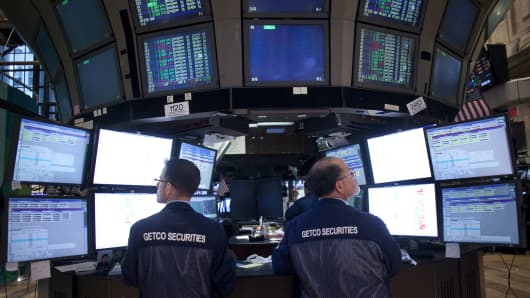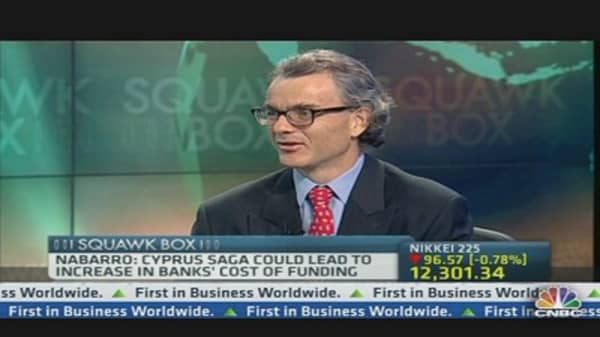Central bank baby sitting: the big stories this week are likely to come from the ECB and the Bank of Japan, both of which are holding meetings later in the week.
Draghi will go to great pains to calm jittery bank depositors, insisting that he will stand by to provide assistance to sound banks.
The big worry, as I noted last week, is that there is so much expectation built into the BOJ meeting there is little Mr. Kuroda, the new head of the BOJ, can say that no one is anticipating.
The Nikkei is up 38 percent since the beginning of November, and the yen has depreciated 15 percent against the dollar in the same period.
Meantime a story in the FT notes that central banks in developed countries have reduced their euro holdings by 45 billion euros (8 percent) last year. Euros now make up 24 percent of central bank reserves, the lowest since 2002.
Elsewhere:
1) China's Shanghai Composite fell to the lowest level this year as Chinese PMI came in below consensus. A big increase in home sales reported.
Japan was down 2.1 percent; the Tankan survey, the quarterly survey of business sentiment conducted by the Bank of Japan, continues to show improvement but was slightly below expectations. Regardless: business leaders are clearly expecting that the Abe/Kuroda nexus will break the deflationary stranglehold. A separate survey indicated that about three-fourths of households also expect prices to be higher one year from now.
2) Airlines: valuations an issue? With the airline index up nearly 25 percent this year, some are starting to worry about the high valuations. The latest is Evercore Partners, who downgraded United today, noting at 37 percent increase this year and "limited upside to our new price target."
Raymond James downgraded US Air and Delta on March 15, noting they appear to be fairly valued.
The good news: the price improvement is indeed based on a notable improvement in financial performance. Airlines have indeed staged an impressive turnaround since the 2009 lows: Barclays notes that Delta and UAL rank #70 and #69 in revenue in the S&P 500.
—By CNBC's Bob Pisani












